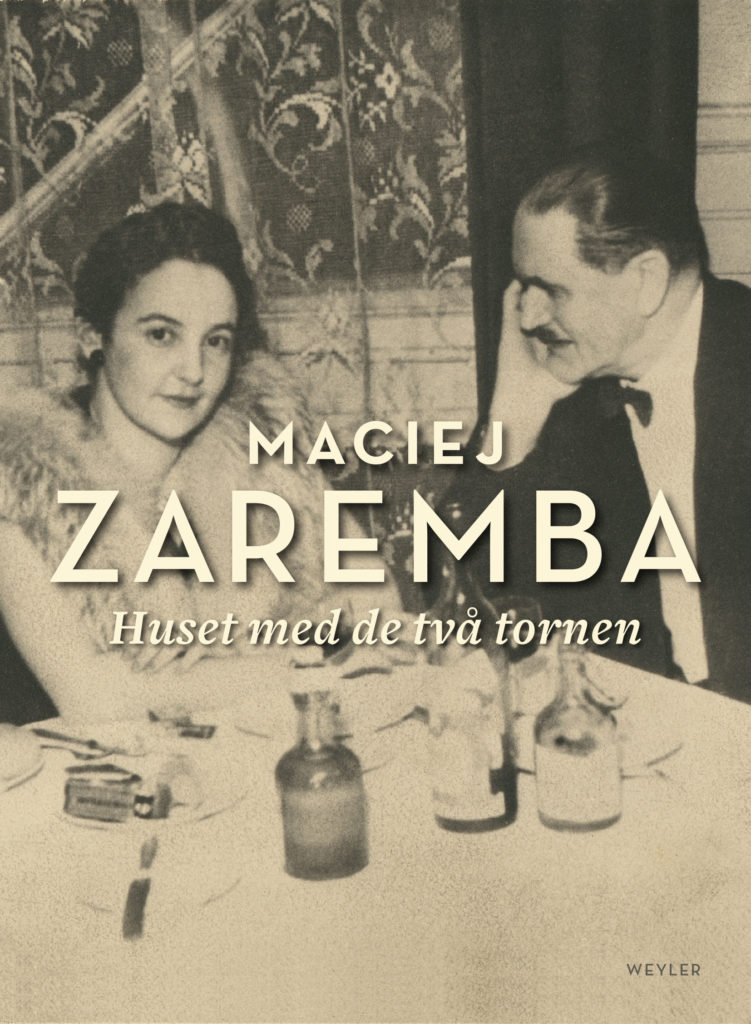The House with the Two Towers
In The House with the Two Towers (Huset med de två tornen), Maciej Zaremba dissects the events of his parents’ lives and how their war experiences led to an inevitable separation. Janny Middelbeek-Oortgiesen, who translates into Dutch, recommends a book that draws a finely nuanced portrait of childhood in post-war Poland.
The Translator's Choice
In the year 1969, 18-year-old Maciej Zaremba Bielawski flees Communist Poland for Sweden, along with his mother, grandmother, and two younger brothers. As Jews who have been made stateless, the family has been given just 60 days to leave Poland. Maciej’s mother has been prohibited from practicing as a psychiatrist in a nation where anti-Semitic sentiment is on the rise – yet again. Her husband Otto Bielawski, 30 years her elder, also a Jew, remains behind in Poland.
As a young girl, Maciej’s mother escaped the Warsaw ghetto at the last possible minute. Thereafter, she drifted in Ukraine, where, in a miraculous turn of events, she survived World War II. In 1946 she met her future husband, Otto, a famous psychiatrist who had also miraculously survived the war, although under completely different circumstances. As a Polish military officer and aristocrat, he was made a prisoner of war in 1939 and taken to a German Oflag (POW camp), where prisoners received many privileges within the framework of their and the Wehrmacht’s code of honour.
In Huset med de två tornen, Maciej Zaremba dissects the events of his parents’ lives and how their war experiences led to an inevitable separation. He also draws a finely nuanced portrait of childhood in post-war Poland, where life would become increasingly difficult for Jews and others who refused to voice support for Communist authorities.
This is an arresting book that takes up many previously undisclosed facts about the World War II. It is a book not to be missed.
About the Translator
Janny Middelbeek-Oortgiesen has worked since 1997 as a translator of Swedish literature into Dutch. She has translated both fiction and nonfiction as well as works for the stage. She is a recipient of the Swedish Academy’s Tolkningspris (2013) and the Dutch Foundation for Literature’s Translation Prize (2018). Her previous translations include Osebol by Marit Kapla, De polyglotta älskarna (The Polyglot Lovers) by Lina Wolff and Pappaklausulen (The Family Clause) by Jonas Hassen Khemiri.
Maciej Zaremba (born 1951)
Works
De rena och de andra: om tvångssteriliseringar, rashygien och arvsynd (The Pure and the Others: On Forced Sterilization, Racial Hygiene and Original Sin), non-fiction, 1999
Skogen vi ärvde (The Forest We Inherited), non-fiction, 2012
Patientens pris (The Patient’s Price), non-fiction, 2013
Awards
Swedish Grand Prize for Journalism 2006
Publicistklubbens Guldpennan 2010
Ryszard Kapuścińskis Award for Literary Reportage 2019
The book
Huset med de två tornen (The House with the Two Towers), nonfiction, 2018, 304 pages

Publisher
Weyler
Rights
Weyler förlag, Anton Gustavsson
Rights sold
Poland, Karakter
Germany, Zsolnay Verlag, to be published in 2023



